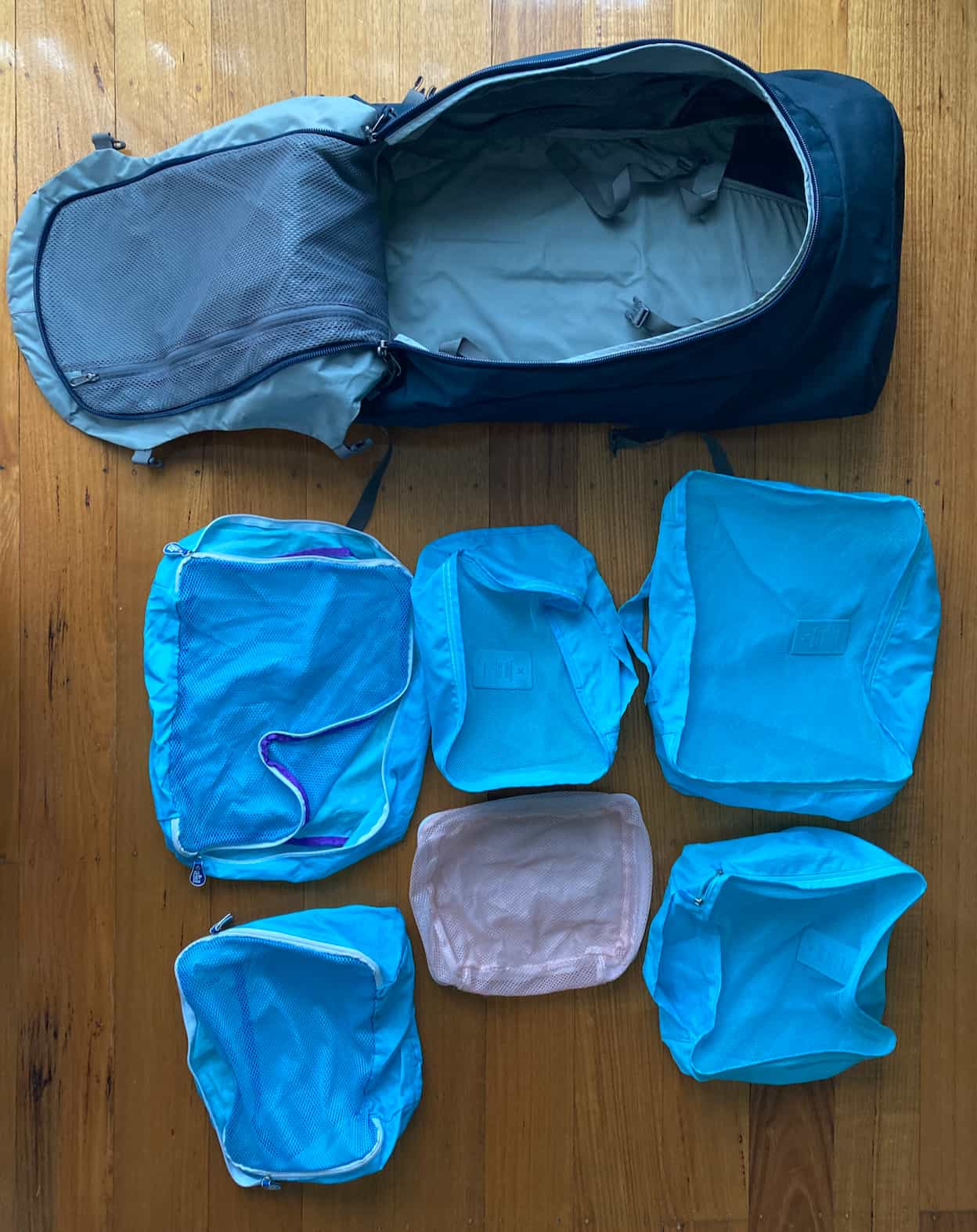We will
Travel AgainYou probably don't need a hiking backpack
I know, I know. You're picturing yourself emerging over a ridge in an untouched wilderness, a barely perceptible sheen of sweat glistening on your skin in the golden hour sun as you gaze upon yet another magnificent vista only accessible to those with an adventurous soul and a sturdy pair of boots.

For a certain kind of trip — multi-day or multi-week hikes — a good hiking backpack is worthwhile.
These are the packs you'll be sold on you walk into any camping goods store before your big backpacking trip. Hiking backpacks have lots of compartments, countless zippers, and a Very Technologically Advanced Harness® System™.
But your backpacking trip probably isn't a long hike through the wilderness.
You only need a "good enough" harness
You'll take trains and taxis to and from airports. Maybe — maybe — you'll carry your bag a few metres, but more likely you'll toss it straight onto a trolley at the airport before checking in your luggage.
Loose straps are a liability at the airport. They'll get caught in the wheels of your trolley. Your fancy Harness® System™ will be snagged on conveyor belts, or used by baggage handlers to unceremoniously hoist your bag around. Make sure you can safely zip the harness away.
Don't get me wrong, you need a backpack. You'll occasionally need to walk across town from a bus station or ferry terminal to your hotel. A mile or two of sandy beach or charming cobblestone streets is not an epic trek through the mountains, but you also don't want to be one of those people struggling to drag a suitcase in the blazing sun on wheels made for smooth airport floors.
Short walks like that will probably be as far as you'll ever carry your backpack. As long as you have a relatively comfortable harness that puts most of the load on your hips, you don't need that expensive CloudMesh® Superflow® Harness® System™ making up a third of your pack's bulk.
It also needs to work in "suitcase mode"
When it's not on your back, you (and various baggage handlers) will be hoisting your pack into taxis and onto luggage racks and off baggage carousels or lugging it up narrow staircases, so ideally it has a couple of sturdy handles.
One big space is better than multiple smaller compartments
This lesson took me a long time to learn but now I can't go back. A single cavernous space — organised exactly to your liking with packing cells — is more flexible and easier to pack and unpack than trying to tetris your gear into 4 or 5 predefined spaces.

Front loading is better than top loading
Hiking packs tend to be top loaders. Which is useful if you only ever want to access the last thing you packed, or you want to pull everything out just to find that pair of socks.
A front loading pack gives you visibility and access. It makes packing and unpacking easier (you're using packing cells, right?) and also makes it easier to get at that one thing without necessarily unpacking everything.
Get a travel backpack, not a hiking backpack
A front loading, single compartment pack with a reasonable harness is usually sold as a travel backpack. You're essentially looking for a glorified duffel bag with a harness.
I have a Macpac Pegasus Travel Backpack and it's amazing. You can read more about it in The best backpack for long term travel.